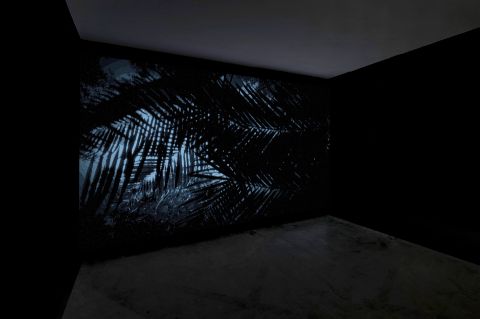Hajra Waheed

Installation view, The Power Plant, Toronto, 2019. Photo: Toni Hafkensheid
This poetic video work begins with a compelling statement by the artist: ‘The spiral is much more than just a form.’ Universal and ubiquitous, centrifugal and centripetal, representing both growth and decay, spirals are one of the most widespread forms found in nature. The work grants us insight into the consciousness of the self and the expansion of this awareness outwards—a springboard for reflecting on individual upheaval and collective human experience. The film builds upon Hajra Waheed’s existing practice of mapping patterns of colonial and state violence, acting as a meditation on change while reminding us of the importance of maintaining the long view, especially in relation to social transformation.
Work in the exhibition: The Spiral (2019), video installation, 7' 10". Courtesy of the artist